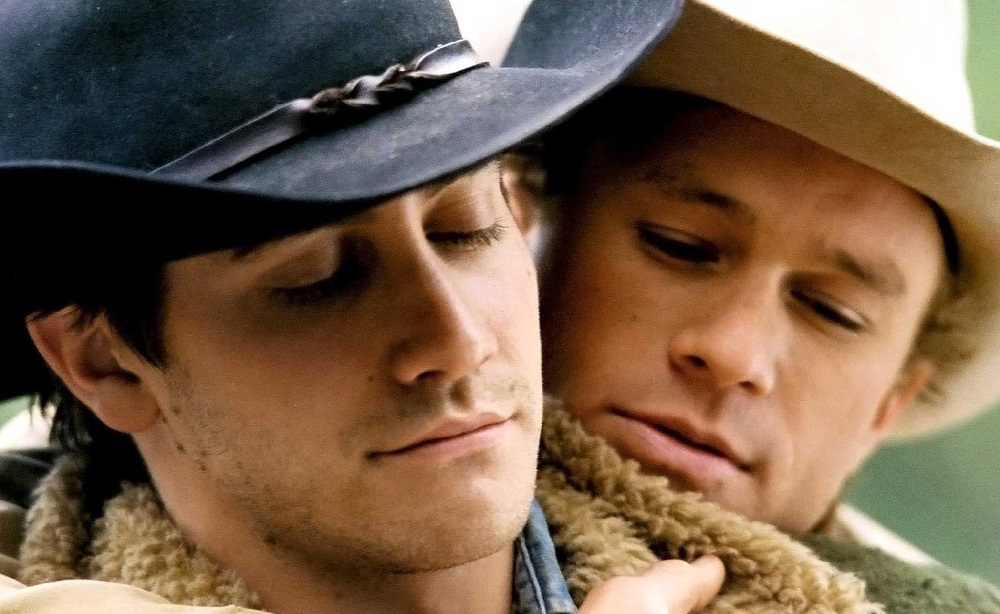Five movies that changed the game for modern LGBT cinema
Tadgh Dolan revisits the gay films that have defined an era.
By Will Stroude

Every so often a film comes along that’s a game changer: whether it’s Stephen Spielberg defining the modern blockbuster with his smash hit Jaws (1975) or Wes Craven reigniting the slasher genre with his Scream franchise, certain films can impact and indeed change the course of movie history forever.
In more recent times, the upcoming Twentieth Century Fox teen drama Love, Simon has seen enormous traction since the trailer for the film went viral amassing over 3.5 million views and counting on YouTube. The film is the first of its kind to be backed by a major studio powerhouse and centres on gay teen Simon, as he battles with the trials and tribulations of coming out.
It’s a modern teen love story from Director Greg Berlanti, who is openly gay himself, and brought us such hits as Dawson’s Creek and more recently the Netflix hit series Riverdale.

Love, Simon has the potential to be a major crowd-pleaser when it hits theatres in the US on March 16 and Britain and Ireland from April. It could also pave the way for other LGBT inspired stories to enter mainstream cinema.
At times like these, it’s important to look back at other films that paved the way for LGBT advancement. Here is our list of five films that have changed the landscape for LGBT cinema…
5) Call Me By Your Name (2017)

Since its premier at the Sundance Film festival, this surprise hit by Italian film maker Luca Guadagnino has gone on to receive critical acclaim.
The story centres on 17-year-old Elio, played by Timothée Chalamet, who falls in love with his father’s research assistant Oliver (Armie Hammer) while vacationing with his parents in the Italian countryside. The two begin a courtship that centres around the classic tale of a forbidden romance. Set in 1983, the film shows no obvious signs of the panic that surrounded being gay during the Regan era. The Aids epidemic created a climate of fear around what it meant to be gay, with Aids being braded as the “gay cancer”.
Despite this, the unforgettable political overtones of the 1980’s are not the central focus of Guadagnino’s love-tale. In fact, there is no open reference to aids, nor is Elio scorned by his parents for his love of Oliver. This is evident in what is perhaps the most touching moment of the film, that final scene between Elio and his father, played by the ever talented Michael Stuhlbarg.
Call Me By Your Name is a ground-breaker in its honest and innately human approach to that most perceptible of human conditions; love.
4) Milk (2008)

Gus Van Sant’s Oscar winning biopic of pioneering gay rights activist Harvey Milk will surely be remembered for the spotlight it shines on the modern gay rights movement.
Supported by an intelligently conceived script by Dustin Lance Black, the film depicts the life and times of Harvey Milk (Sean Penn) from his humble beginnings as a camera shop owner in San Francisco’s notorious Castro District to becoming the first openly gay elected official in the history of California.
3) Blue Is The Warmest Colour (2013)

Perhaps one of the most controversial films of 2013, Blue Is The Warmest Colour is noted for its honest and graphic depictions of sex and queer identity. Winner of the 2013 Palme d’Or at the Cannes Film Festival, the movie went on to gross over $20 million at the international box office, and ignited opinion from audiences and critics alike.
Adèle’s life is changed when she meets and falls romantically for the stunning blue-haired Emma (Léa Seydoux), who opens a previously unknown world of sexual exploration and romantic intrigue for the young Adèle. What follows is a touching and at times haunting love story that pushes both women to their breaking points.
2) Boys Don’t Cry (1999)

Launching the career of Hilary Swank as a major force in Hollywood cinema, the release of Boy’s Don’t Cry was a pivotal moment for LGBT film.
The film tells the real-life story of Brandon Teena, an American trans man played in the film by Swank, who attempts to find love and a new life in Nebraska only to fall victim to a brutal crime.
The film is important for its representation of the trans community onscreen and paved the way for modern shows such as the hit series Transparent. The movie also draws attention to the violence experienced by the trans community, as well as issues of class, gender, and social equality.
1) Brokeback Mountain (2008)

Earning an astonishing $140 million at the global box office, Ang Lee’s romantic drama about two love-torn cowboys proved that gay stories could be commercially viable and a hit with the critics.
The film won three Oscars, with lines such as “I wish I knew how to quit you” entering the popular vernacular of the time. The casting of two established, heterosexual male actors, in the form of Ledger and Gyllenhaal, also broke down boundaries surrounding the types of roles actors could play.
Stories that centred on LGBT characters became attractive, daring, and in some cases, Oscar worthy. We see this most recently in films like The Kids Are All Right (2010) and Carol (2015) that gay stories are not only commercial viable, but interesting and relatable.
Tadgh Dolan is a writer from Dublin, Ireland who currently works as a content coordinator and customer service specialist.”
